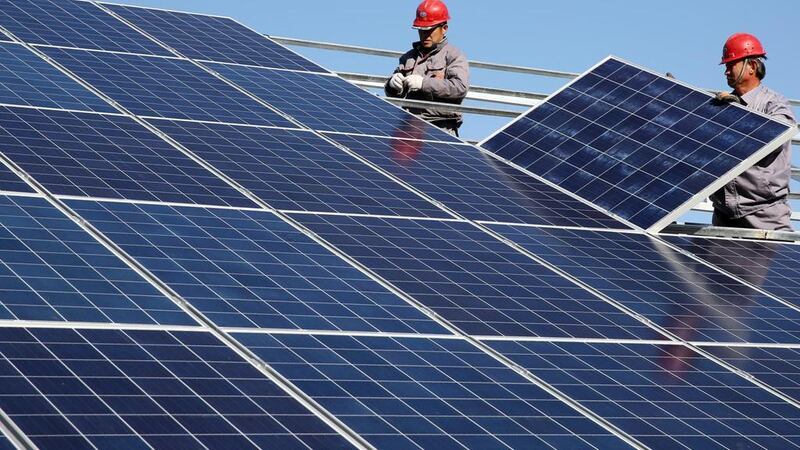The European Union has sent the United States a demand for talks on compensation for steep US tariffs imposed on imported solar panels, a World Trade Organisation filing showed on Wednesday.
The EU request said Germany was a major exporter and cited WTO rules under which it could demand compensation. The EU move follows similar steps by China, Taiwan and South Korea, but unlike them it did not accuse the US of breaking WTO rules, Reuters said.
The revelation comes as power generated by wind, solar and biomass in the EU overtook coal for the first time in 2017, a report by Germany’s climate lobbyist Agora Energiewende and UK think tank Sandbag showed, according to Bloomberg.
Wind and solar parks and biomass plants dotted from Ireland to Romania raised their share of gross generation in the 28-state trade bloc to 20.9 per cent of all power last year, ahead of lignite and hard coal power at 20.6, said the two organisations. A year earlier, electricity from coal was ahead at 21.5 per cent of the mix to the clean power group’s 18.8 per cent.
“This is incredible progress, considering just five years ago, coal generation was more than twice that of wind, solar and biomass,” Agora and Sandbag said in a joint preamble to the report.
_______________
Read more:
Middle East renewable energy targets require as much as $40bn capital investment, says GE
Acwa Power wins inaugural solar project in Saudi Arabia
_______________
Utilities like Denmark's Orsted, Spain's Iberdrola and Germany's Eon are shifting out of coal generation in the EU, joining governments in the UK, Italy, the Netherlands and Portugal which have pledged to phase out coal power. Germany may announce a phase-out road map in 2019.
Coal-fired power declined 7 per cent in the bloc in 2017, led by plant retirements in Germany, the UK and the Netherlands, said the report. The shutdowns were partly made on commercial grounds in Germany.
The role of natural gas and hydro power may slow the shift from fossil-fired electricity in the bloc to renewables, the report indicated. Hydro power generation dropped to its lowest in the EU-28 last year while gas-fired power grew.





